Transmission Control Module For Audi A4 A5 A6 A8 CVT TCU TCM 01J 01J927156HT 01J927156JG
$869.40
Out of stock
Description
Introduction to Transmission Control Module For Audi A4 A5 A6 A8 (TCM)
Transmission Control Module For Audi A4 A5 A6 A8 (TCM) is an essential component in modern vehicles, particularly for models equipped with Continuously Variable Transmissions (CVTs), such as the Audi A4, A5, A6, and A8. The TCM is an electronic control unit that manages the operation of the transmission system, playing a critical role in enhancing vehicle performance, fuel efficiency, and overall driving experience.
At its core, the TCM is responsible for regulating the shifting of gears in the transmission. Unlike traditional automatic transmissions that use a set number of gear ratios, CVTs allow for an infinite range of gear ratios, providing smoother acceleration and optimizing engine performance. The TCM achieves this by utilizing data from various sensors throughout the vehicle, such as throttle position, vehicle speed, and engine load. By analyzing this information, the TCM can make real-time adjustments to the transmission, ensuring optimal power delivery and efficiency under varying driving conditions.
In particular, Audi models such as the A4, A5, A6, and A8 utilize specific TCM models, including the 01J unit, which boasts unique features tailored to enhance the driving experience. For instance, the 01J TCM is designed to facilitate quick and seamless gear transitions while minimizing engine strain. This performance-oriented approach helps to improve fuel economy and provide drivers with a responsive and dynamic driving experience.
Overall, the Transmission Control Module serves as the brains of the vehicle’s transmission system, utilizing advanced algorithms and data processing capabilities to optimize performance and efficiency. Understanding the critical role that the TCM plays in Audi’s CVT technologies provides insight into the advanced engineering that underpins these remarkable vehicles.
Overview of Audi’s CVT System
Audi has integrated Continuously Variable Transmission (CVT) technology into its A4, A5, A6, and A8 models, reflecting the brand’s commitment to innovation and performance. The CVT system in these vehicles offers a distinctive driving experience by providing a smoother transition between gear ratios, in contrast to traditional automatic transmissions that are restricted to fixed gear ratios.
The operational mechanism of Audi’s CVT allows for an infinite number of effective gear ratios, which enables the engine to operate at its most efficient speed for a given driving condition. This characteristic not only enhances fuel efficiency but also contributes to improved vehicle responsiveness. As the speed varies, the CVT adjusts seamlessly, providing constant power delivery without the noticeable shifts commonly associated with conventional transmissions.
One of the primary advantages of Audi’s CVT technology is its ability to enhance fuel economy. By continuously optimizing the engine’s RPM, the CVT ensures that fuel is consumed more efficiently, especially during city driving or stop-and-go traffic scenarios. This efficiency is particularly beneficial in an era where environmental considerations are paramount. Furthermore, the smooth acceleration provided by the CVT helps deliver a more enjoyable driving experience, reducing driver fatigue during long journeys.
Beyond fuel efficiency and acceleration, Audi’s CVT system also improves driving comfort. The lack of gear shifts contributes to a quieter cabin and minimizes jolts, making for a more pleasant ride. Additionally, Audi has engineered its CVT to handle varying power outputs effectively, ensuring that performance is not compromised. In essence, the CVT technology in Audi’s lineup encapsulates the brand’s focus on luxury, efficiency, and cutting-edge automotive engineering.
Key Features of the 01J TCM
The 01J Transmission Control Module For Audi A4 A5 A6 A8 (TCM) plays a crucial role in the operation of the continuously variable transmission (CVT) used in various Audi models, including the A4, A5, A6, and A8. Notably, the 01J927156HT and 01J927156JG are two prominent variants of the 01J TCM, each with distinct specifications and functionalities. Understanding these features is essential for the optimal performance of the transmission system.
In terms of compatibility, both the 01J927156HT and 01J927156JG are specifically designed to work seamlessly with the relevant Audi models. However, the HT variant tends to be more common in earlier models while the JG version may be found in later iterations. This compatibility ensures the TCM can effectively communicate with the vehicle’s engine and transmission, optimizing gear shifts and promoting smoother driving experiences.
Regarding size and performance metrics, the 01J TCM is compact yet powerful, allowing it to be easily integrated into the confines of the vehicle. This compact design does not sacrifice functionality; in fact, it enhances the overall performance of the CVT. One of the notable aspects of the 01J TCM is its software capabilities, which permit various customization options. This software functionality can adapt to driving styles, adjust shift points, and improve fuel efficiency, demonstrating the module’s advanced engineering.
Additionally, the performance of the 01J TCM is reflected in its responsiveness and adaptive learning abilities. The TCM continuously monitors driving conditions, adjusting its operation accordingly, which enhances driveability and vehicle dynamics. With these features, the 01J TCM proves itself to be a key component in achieving optimal vehicle performance, making it a noteworthy element in Audi’s engineering portfolio.
Common Issues and Troubleshooting Tips
The Transmission Control Module (TCM) in Audi models such as the A4, A5, A6, and A8 is crucial for managing the performance of the Continuously Variable Transmission (CVT). Recognizing common issues associated with the Audi TCM is essential for maintaining optimal vehicle performance. Some prevalent problems include failure to shift, erratic shifting, and dashboard warning lights, all of which can indicate serious issues within the transmission system.
One of the most common symptoms owners may encounter is a failure to shift gears properly. This can manifest as a noticeable lag in response when accelerating, or an inability of the transmission to engage the proper gear. This issue could arise due to faulty sensors or software malfunctions within the TCM. In such cases, it is advised to conduct diagnostic testing using an OBD-II scanner to determine any stored error codes that can pinpoint the problem.
Erratic shifting is another frequent issue that can present itself in these Audi models. Drivers may experience sudden shifts, delayed gear engagement, or even harsh transitions between gears. These symptoms can often be linked to low transmission fluid levels, or contaminated fluid, which can compromise the TCM’s functionality. Regularly checking transmission fluid levels and quality can help prevent this type of malfunction.
If warning lights illuminate on the dashboard, it is a clear indication that the TCM has detected a fault or anomaly in the transmission system. This should not be ignored, as it can lead to more severe issues if not addressed promptly. Upon detecting such warning signals, it is advisable to consult vehicle diagnostic equipment for a thorough check-up.
Preventive maintenance plays a crucial role in avoiding common faults associated with the Audi TCM. Regular firmware updates, fluid changes, and routine inspections by professional mechanics can help prolong the life of the transmission system. Taking these proactive measures can significantly diminish the likelihood of encountering serious transmission issues in the future.
Replacement and Upgrading Options for the TCM
When it comes to replacing or upgrading the Transmission Control Module (TCM) in Audi A4, A5, A6, and A8 vehicles, several options are available to owners. It is essential to identify the right replacement part to ensure optimal performance and compatibility with the vehicle’s system. Audi owners typically face a choice between Original Equipment Manufacturer (OEM) parts and aftermarket options. OEM parts are designed specifically for Audi vehicles, ensuring a perfect fit and reliability, while aftermarket parts may offer cost savings and alternative features but can vary in quality and compatibility.
One of the primary considerations during the selection process is the vehicle’s specific make and model year. TCMs are not universally interchangeable, and selecting an incorrect module could lead to functionality issues or damage to the transmission system. Therefore, consulting the vehicle’s manual or a trusted dealership can provide necessary insights into compatible options. These sources will assist in identifying the correct specifications required for a successful replacement.
The installation process of a new TCM can vary in complexity. While some vehicle owners may opt for DIY installation, employing a professional technician is often recommended to avoid potential errors that could worsen transmission problems. Estimates for installation costs can vary widely, so it’s essential to verify prices from several mechanics or service centers. Furthermore, the total cost may include the price of the TCM itself, which should be factored into the overall budget plan.
Reputable suppliers are crucial when sourcing a TCM. Online marketplaces, authorized dealers, and specialty auto parts stores are reliable avenues to explore. Before making a purchase, reviewing customer feedback and asking for warranties can ensure that the component meets the expected quality standards. By taking these factors into account, Audi owners can make well-informed decisions regarding the replacement or upgrade of their transmission control module.

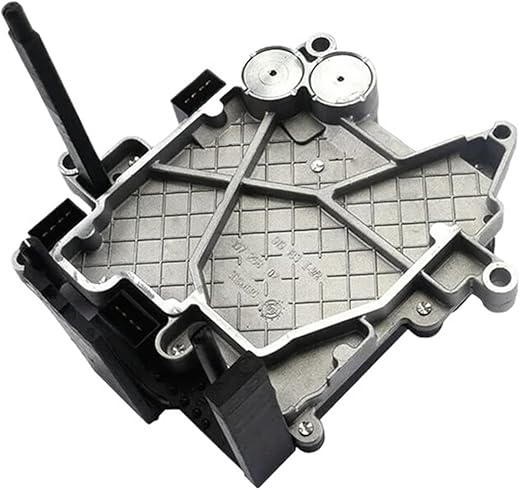
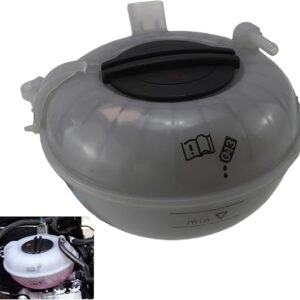
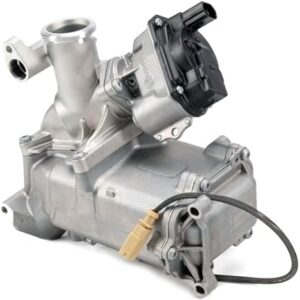
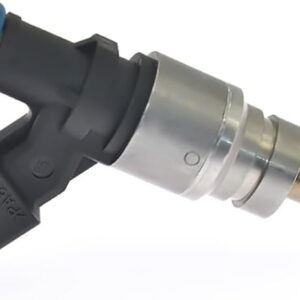
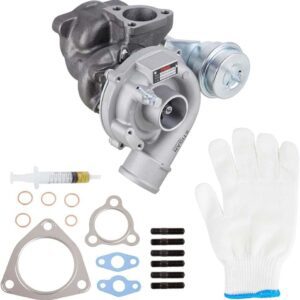
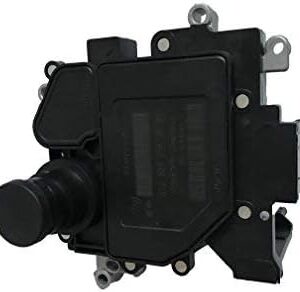
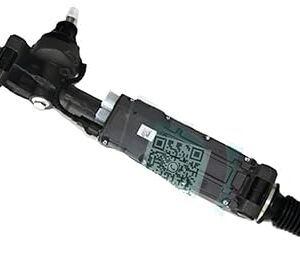
Reviews
There are no reviews yet.